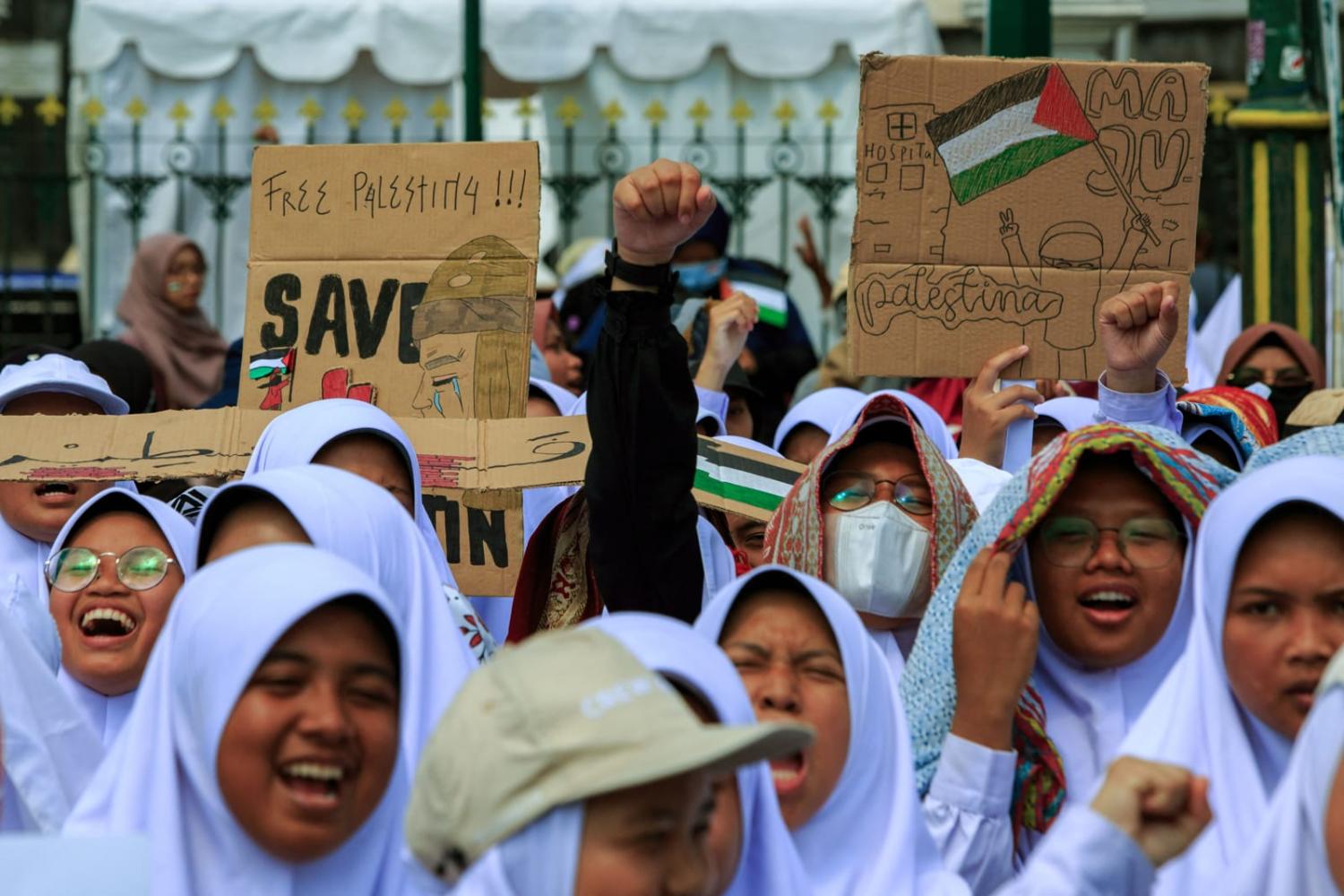In the days since Hamas launched a deadly attack on southern Israel on 7 October, the Association of Southeast Asian Nations has not made a formal statement about the crisis. This is not surprising, given that each ASEAN member sees the conflict differently. The language adopted and positions taken by individual ASEAN members reflect the interplay of historical or domestic dynamics in their foreign policy. ASEAN is a grouping – but on this issue, not a bloc.
Let’s look at the diverse response from the ASEAN members – where at one end of the spectrum, Brunei, Malaysia and Indonesia have expressed unity with the Palestinians. None of them has diplomatic relations with Israel and all have remained steadfast in their criticism of Israel despite Western pressure. Malaysian Prime Minister Anwar Ibrahim spoke to Ismail Haniyeh, the political bureau chief of Hamas, and expressed support for an immediate ceasefire in the Gaza Strip.
In each of Malaysia, Brunei and Indonesia, religion is significant in domestic politics. With Muslim majority populations, there is widespread public solidarity with the Palestinian struggles.
The significance of religion in Indonesian domestic politics was compelling enough for Ganjar Pranowo, one of the candidates for next year’s presidential election, to appear during an Islamic prayer call on a private TV station as part of his campaign. Furthermore, recent public demonstrations in Jakarta and Kuala Lumpur against Israel and the United States reflect sentiment on the street about the latest fighting, which governments cannot ignore.
Conversely, Singapore took a firm position against Hamas and strongly condemned the “terror attacks”. The small island-state has close defence relations with Israel, with Israeli military advisers assisting the Singapore Armed Forces since Singapore’s independence in 1965. Defence relations remain strong, as reflected in the joint development and production of surface-to-surface Blue Spear missiles.
Singapore’s strong stance against Hamas leaves it out of step with its larger Muslim-majority neighbours. Bilahari Kausikan, an influential former Singaporean diplomat, made clear the difference by frankly labelling as “bullshit” a view he attributed to a Malaysian ex-diplomat for the “root cause of the current violence” to be addressed, instead supporting a robust Israeli military response against Hamas.
Nevertheless, Singapore is concerned the crisis could lead to domestic division along religious lines as there is a sizable Muslim minority in the island-state. The government has banned events and public assemblies concerning the current Israel-Hamas conflict, citing rising tension as a reason. And to avoid a view that the Singapore position was one-sided, a government minister later said it was possible to be concerned regarding the Palestinian plights while condemning Hamas’ action. The Singaporean President and Prime Minister sent letters to Palestinian leaders, expressing condolences for the mounting casualties in the Gaza Strip, and pledging a $300,000 donation in humanitarian aid.
Two other ASEAN members, the Philippines and Thailand, have large numbers of nationals working in Israel and have suffered casualties in the current crisis. Yet each responded differently. The Philippines condemned Hamas’ actions, while Thailand initially expressed neutrality, stating that “we do not know the truth about the political climate between the two nations [Palestine and Israel].” Manila’s response could be attributed to its experience battling militant groups in the southern Philippines over decades. As recently as 2017, militant groups professing alignment with the Islamic State seized control of Marawi, a city in the south of the Philippines, which led to a months-long campaign by the Philippines military with regional support to drive the militants out.
Across mainland Southeast Asia, Cambodia, Laos and Vietnam issued softer statements, expressing concern about the crisis without assigning blame to any party. The military junta in Myanmar is more focused on regime survival, launching an air strike against domestic insurgents, killing 29 people a few days after the Hamas attack on Israel.
These historical and domestic dynamics inform the policy of individual ASEAN states and provide some perspective in their reading of and response to the current crisis in the Middle East. It demonstrates a lack of unity among the Southeast Asian grouping that some observers argue dilutes its relevance. Yet despite the diverse responses by individual ASEAN members, there has been no official criticism by one member against another. This is consistent with ASEAN’s norms of non-interference in each other’s affairs, which aims to ensure the stability of Southeast Asia, a region that is still experiencing the threat of terrorism, internal rebellions, and inter-state territorial disputes.
Perhaps the silent acceptance of diverse positions is a strategy for ASEAN to cope in the more volatile world that we live in today.

